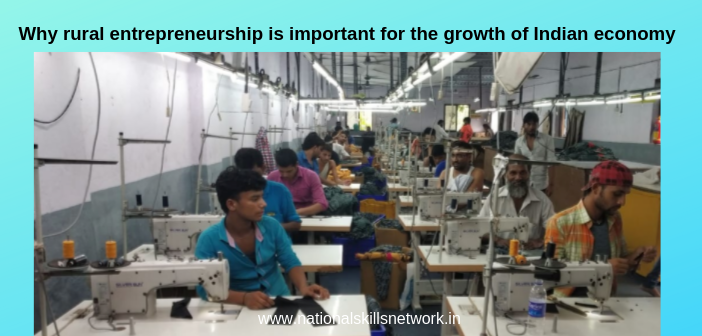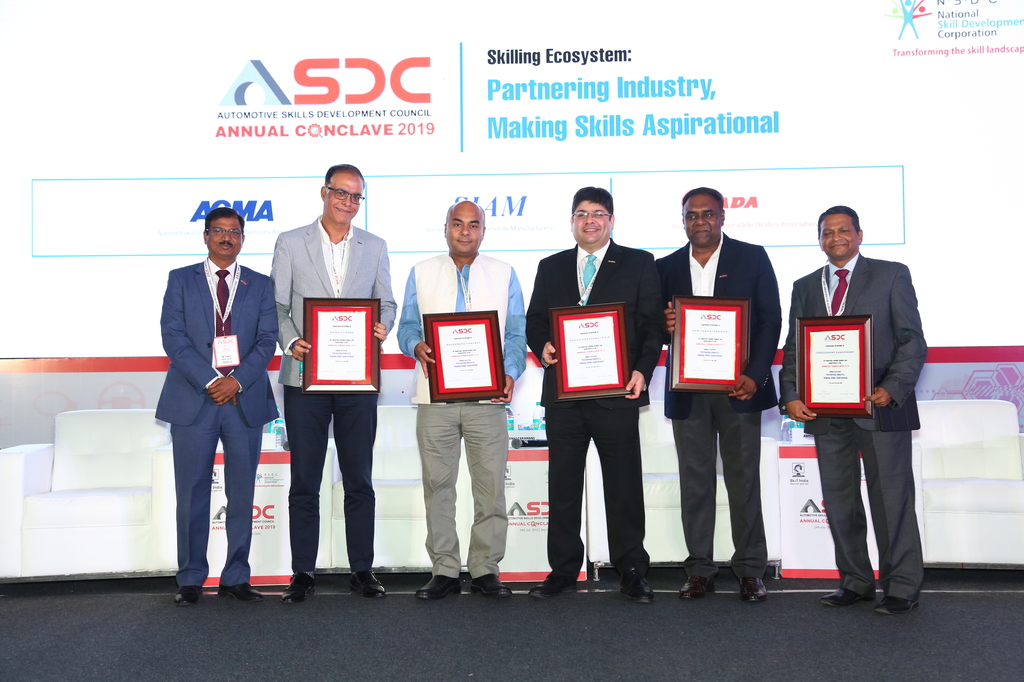The government’s drive to build aspirational districts is a welcome move to encourage rural entrepreneurship. Districts in India always consist of one big town and several villages around. Growing up in Vadodara and looking 30 years back, I can see that there are still many areas in the city which are recognized by the original names of villages which became part of the expanding town, though the boundaries disappeared.
Aspirational Districts have been well articulated on NITI Aayog’s website, to quote , “the broad contours of the programme are Convergence (of Central and State Schemes), Collaboration (of Central, State level ‘Prabhari’ Officers and District Collectors), and Competition among districts driven by a mass movement.”
If we go deeper into the subject from a broader perspective, the convergence will lead to making Rural Entrepreneurship aspirational. For that, we have to look at the the important aspects of Rural Entrepreneurship and understand why it is important for the growth of Indian economy.
Perspective on Rural Entrepreneurship
While our country is an agricultural country, there are many other industries which can develop with the right support and acknowledgment. Let us move away from the conventional models of “only” farming and related products, and look at how the migrant population in the industrial or commercial centres is driving the entire business ecosystem. Two of the core manufacturing areas (Garment manufacturing and Foundry industry) in which we are presently engaged, have a huge amount of migration, which has multiple levels of impact on balancing the economical distribution of wealth and prosperity, and adds to tremendous pressure on the infrastructure of the city, stress and distress.
 Impact of Rural Entrepreneurship
Impact of Rural Entrepreneurship
When people migrate from rural areas, it impacts the economy of the place. By acknowledging the plethora of untapped opportunities in rural areas, migration can be minimized. The potential migrants can contribute in the small and medium sized business in their own regions which will benefit both the rural economy as well as the individual.
By following a modular approach, building skills and competencies, if units like garment/apparel manufacturing, which employs a huge amount of workforce, can evolve as suitable rural business model. Considering the people behind the production are all from the rural belt, and have acquired skills over years, it is possible to engage them back in their rural ecosystem. Food processing is another business that can boost rural economy.
The education system can be strengthened as the local entrepreneurial opportunities increase, the migration of students to study, and the costs involved again goes down. There is a snowballing effect which takes place once a business starts generating income and brings money into the local economy.
Challenges and obstacles to Rural Entrepreneurship
Rural workforce faces unique social and cultural challenges in taking up certain jobs. People who would take up any work in Mumbai, find it below their dignity to do the same work in their districts or villages because of social perception. This is a fixed mindset that needs to change. It’s not easy to do but it can be initiated. Then, there are obstacles which are beyond an individual’s control, starting with political will and policies which will help overcome the challenges. This again comes from the fear of losing “control” on the local economy. The regions which could overcome these obstacles are clearly seen as progressing and their rural ecosystems have also thrived.
Another challenge is to build the culture of quality and commitment that are critical to any business. With globalization, no business or industry will be confined to one country. Meeting their expectation of global customers in terms of quality and meeting the dead line are important for the sustainable growth of the entrepreneurship. Even the domestic buyers expect things on time and with good quality. Even if the cost is lower, the product or business may not sustain or survive, if there will be no assurance of quality and time.
Entrepreneurship is critical to sustainable development and supporting both economic and social gains, helping to create an inclusive society. Entrepreneurs are inventors who drive solutions, including the issue of climate change. While talent is everywhere, opportunity is not. The political will has been shown at the top leadership, and needs a very persistent effort to build systems which can ensure sustained support to rural entrepreneurship.
The opportunities in India are immense, and the talent pool has lot of aspirations. It is time to dive deeper and as I find Empretec or similar interventions (refer my articles on the same) working on the behaviors of all the individuals, would be fundamental for building our rural entrepreneurship. Empretec also finds a mention in the UN General Assembly Resolution of 2018 on Sustainable Development.
Guest Author: Manish Kothari, Managing Director, Rhino Machines Pvt Ltd : Director, ACE Foundation Email : manish@rhinomachine.com














too many people migrate to Bangalore city for work esp into garment industry
interested to be micro entrepreneur to setup garment manufacturing in village
how to proceed further